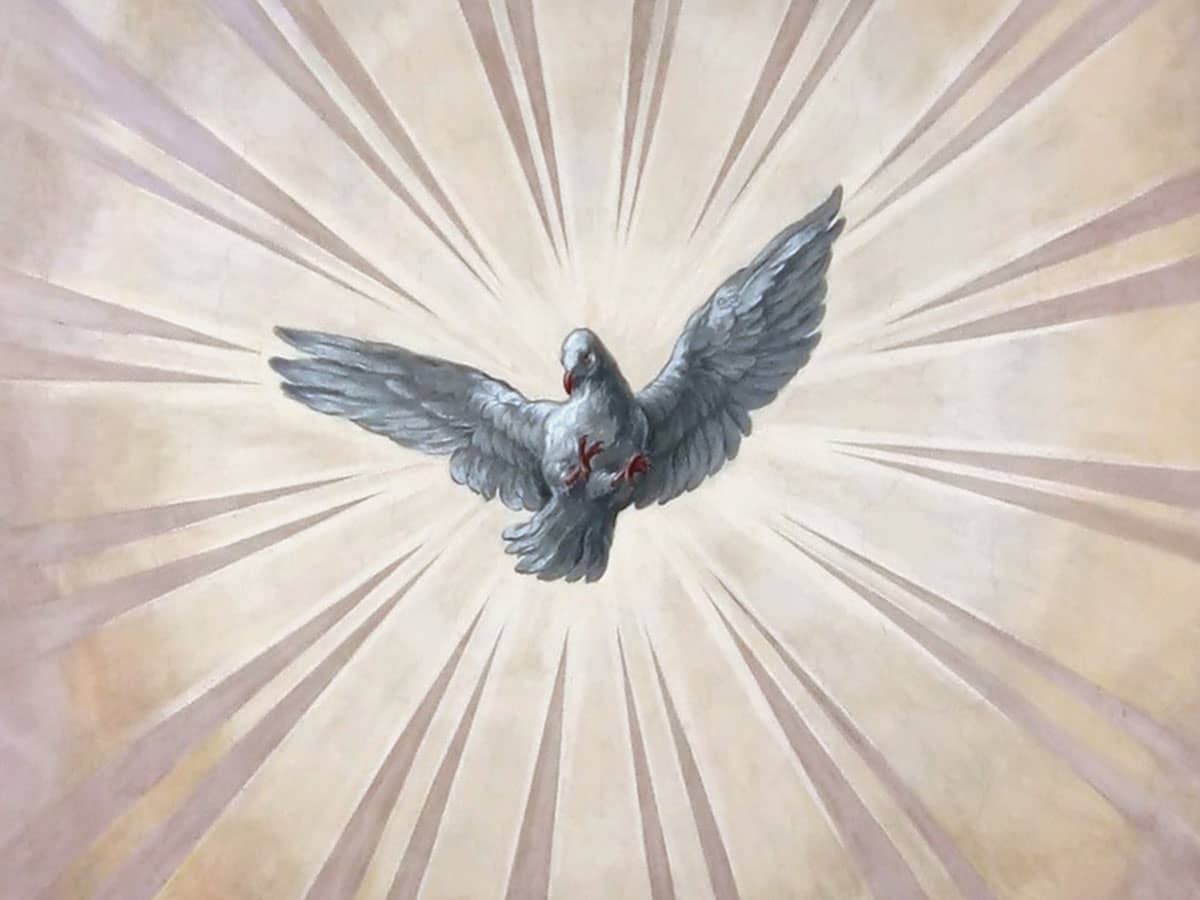
Pentecost marks the end of the Easter season for Christians and commemorates the outpouring of the Holy Spirit on the early followers of Jesus. On Pentecost Sunday, Christians around the world celebrate this holy day, with symbols of flames, a dove and wind marked throughout churches. Though this holy day is not recognized by all Christians, the Pentecost was a monumental turning point in Christian history, considered by many to be the birthday of the church and is a watershed event in Christianity.
Trinity Sunday is the first Sunday after Pentecost to honor the Holy Trinity – the Father, Son and Holy Spirit. While the word “trinity” does not appear in in Scripture, it is taught in Matthew 28:18-20 and 2 Corinthians 13:14 along with many other Bible passages. The Bible tells us, “And Jesus came and said to them, ‘All authority in heaven and o earth has been given to me. Go therefore and make disciples of all nations, baptizing them in the name of the Father and of the Son and of the Holy Spirit’” (Matthew 28:18-20). The concept of the Holy Trinity can never be completely understood. That is the mystery. But it is clearly taught in Scripture. Understanding this comes through the work of the Holy Spirit; therefore, it is appropriate that this mystery is celebrated the first Sunday after Pentecost, when the outpouring of the Holy Spirit first occurred. In order to better understand Trinity Sunday, you must first know Pentecost Sunday and why it is celebrated.
The English word “Pentecost” is translated from the Greek work pentekostos which means “fifty”. This comes from the ancient Christian expression “pentekoste hemera” which means “fiftieth day”. In fact, Christians borrowed the phrase from Greek-speaking Jews who used the phrase to refer to a Jewish Holiday known as the Festival of the Weeks. Leviticus 23:16 instructs people to count seven weeks (50 days) from the end of Passover to the beginning of the next holiday. Jews celebrate Pentecost 50 days after the end of Passover. Christians observe the day 50 days after Easter.
Pentecost is recorded in the New Testament in the Book of Acts. The account begins with the Holy Spirit descending on a group of followers who, upon receiving it, begin to speak in tongues. The Bible tells us “And when the day of Pentecost was fully come, they were all with one accord in one place. And suddenly there came a sound from heaven as of a rushing mighty wind, and it filled all the houses where they were sitting. And there appeared unto them cloven tongues of fire, and it sat upon each of them. And they were all filled with the Holy Spirit and began to speak in other tongues, and the spirit gave them utterance” (Acts 2:1-4).
Before Jesus was crucified, He told the disciples that the Holy Spirit would come after Him. Jesus said: “And I will ask the Father, and he will give you another Counselor to be with you forever – the Spirit of truth. The world cannot accept him, because it neither sees him nor knows him. But you know him, for he lives with you and will be in you. I will not leave you as orphans; I will come to you” (John 14:16-18). Just as Jesus said, 40 days after the resurrection (10 days after He ascended into heaven), the promise was fulfilled when Peter and the early Church were in Jerusalem for Pentecost.
Many Christians recognize Pentecost as the birth, or the birthday of the church as it commemorates the establishment of the church as a result of the Apostles’ teachings on the gospel and the baptism of thousands of followers. Pentecost is when the Apostles went out among the people and began spreading Jesus’ message, thus establishing the beginning of the church. With the decent of the Holy Spirit, a New Covenant is inaugurated. It is one of the most ancient feasts in the Church, mentioned in the Acts of the Apostles (20:16) and Paul’s First Letter to the Corinthians.
The languages spoken by the early Christians were heard by thousands of Jewish pilgrims who were in Jerusalem to celebrate Shavuot, and those languages were intelligible. Those who were there spoke of the miraculous messages connected with God’s mighty works. While those who heard the messages in their own languages were amazed, others thought the Christians were just drunk, particularly because it was a feast day for the Jews. But they were not drunk. They were filled with the Holy Spirit. Pentecost was not just an event that happened many years ago. Pentecost is now.
On Trinity Sunday, the Christian Church ponders with joy and thanksgiving what the Father, Son and Holy Spirit have done to accomplish the salvation of sinful humanity. It is brought to remembrance how Christians should respond to the love God has shown for us, praising Him and giving Him glory. We remember the Father as our Creator, the Son as our Savior and the Holy Spirit as our Comforter. Scripture that is read at Pentecost often include Psalm 8 which says, “O Lord, our Lord, how majestic is your name in all the earth! You have set your glory above the heavens. Out of the mouth of babies and infants, you have established strength.” 2 Corinthians 13:11-13 appeals to believers to aim for perfection and live in peace, ending with the prayer that the grace of Christ Jesus, the love of God and the fellowship of the Holy Spirit be with all, including again the commission Jesus left for believers in Mathew 28:16-20.
Trinity Sunday is to explain, to the best of our ability, the clues written in Scripture to guide us to a fuller understanding of our triune God. The Father is God from the beginning (John 1:1). Jesus revealed Himself as equal to the Father in John 10:30, “I and the Father are one.” Together, they sent the Holy Spirit. The Bible tells us, “For there are three that bear record in Heaven, the Father, the Word and the Holy Spirit, and these three are one” (1 John 5:7-11). To understand the Trinity is to understand God more fully.

